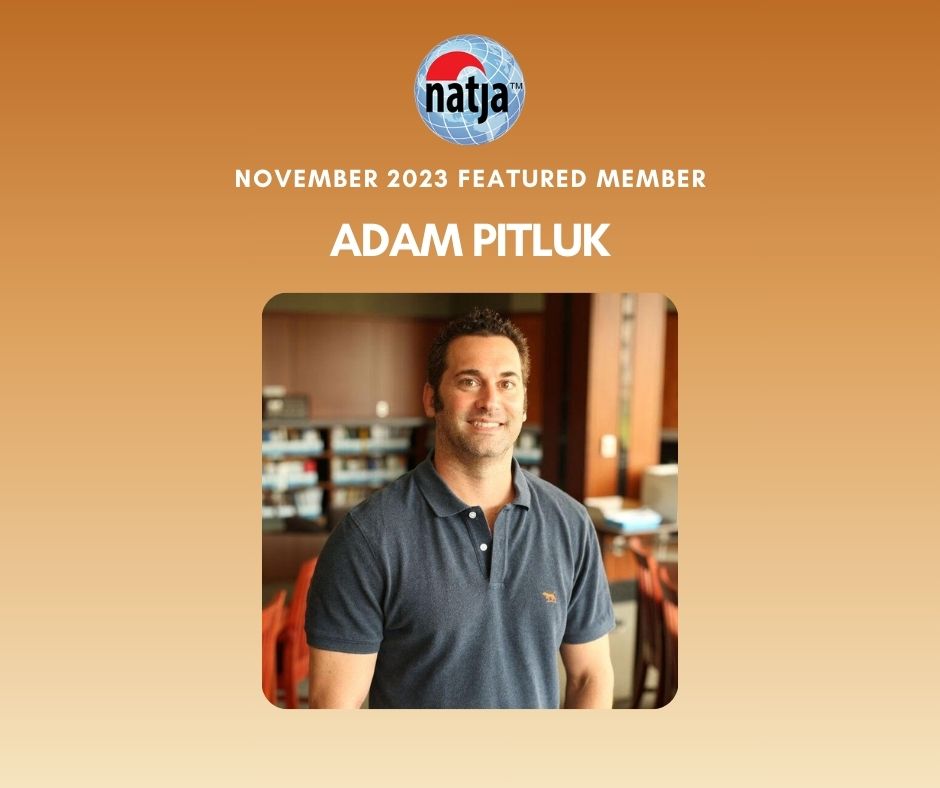Adam Pitluk, Ph.D., is an award-winning journalist and the author of Damned To Eternity and Standing Eight, both books critically acclaimed and studies of the human condition. He was the Contributors Network Editor at the Dallas Morning News. He is the former Director of American Airlines Publishing, Editor-in-Chief of American Way magazine, and Editorial Director of Celebrated Living and Nexos magazines, the first class and Spanish/Portuguese magazines of American Airlines, respectively.
Prior to joining American Airlines full-time, Adam was a reporter for Time magazine for seven years. He was also a reporter for People magazine from his days in New York, where he covered celebrity news. Adam is the former senior editor of Spirit magazine, the in-flight magazine of Southwest Airlines, and the former features editor of Boys’ Life magazine. He was a reporter for Court TV.com and a former staff writer for Village Voice Media. Adam was an adjunct professor of journalism at the University of Texas at Arlington and the University of North Texas, where he taught reporting and editing, and he also taught magazine writing and production at the University of Oklahoma.
Adam’s work has appeared in a host of publications, including Smithsonian Air & Space, Popular Mechanics, New York Daily News, New York Review of Magazines, Dallas Morning News, Cleveland Plain Dealer, Vail Daily, Broward/Palm Beach New Times, Details, Riverfront Times, D Magazine, and Fort Worth magazine. He’s also appeared on national television and radio dozens of times. He is the founder of Groom Lake Media and Midwest Luxury Publishing.
Adam has a bachelor of journalism from the University of Missouri, a master of science from the Columbia University Graduate School of Journalism and a Ph.D. journalism/mass communications from the University of Oklahoma. Originally from Cleveland, Ohio, he now lives in Dallas, Texas.
1. What got you into travel writing?
When I was a reporter with Time magazine in the early 2000s, I always looked forward to the stories that would put me on the road. I learned so much about people and cultures just by spending a few days in their environments. The food they eat, the sports they watch, the beer they drink, the friends they keep … it was like pieces of a puzzle fitting together and telling the story of the destination. Years later, when I was offered a position as the senior editor of Southwest Airlines’s in-flight magazine, I jumped at the chance and my travel writing career began. I similarly jumped at the chance with American Airlines’ American Way magazine came calling for their editor-in-chief job, where I really honed my skills.
2. What’s the most challenging part of being a travel journalist for you?
These days, it’s the shrinking number of outlets. The in-flight magazines have all but disappeared, and the only one left reads like pay-for-play advertorial content. My goal as a magazine publisher is to expand the reach of travel content by creating custom magazines for various DMOs, Chambers, and EDCs that celebrate professional travel writing and photography.
3. What is one thing [equipment or personal item] you can’t go without on the road?
Chapstick. Some of these places are just plain dry.
4. What’s your most unusual and/or memorable travel experience?
I usually seek the unusual on the road, so it’s tough to rank the unusual, but climbing a mountain in Delicias, Mexico, with twice deported ex-con professional boxer Jesus Chavez (who would go on to be lightweight champion of the world) was absolutely among the most interesting.
5. How did you learn about NATJA and why did you join?
I’ve been a NATJA member for almost 20 years. When I was editor of American Way, this was always the award we cared about the most. And now as a publisher (with many people from those American Way teams), this is still the award we care about the most.
6. What is the best piece of advice you could give to a rookie travel journalist?
Start early and keep a spreadsheet of all of your contacts. Arrange them by genre, not publication, and make sure you get your name in some editors’ mouths because once they realize you’re good, you won’t have to pitch for a living: You’ll just have to answer a ringing phone.






